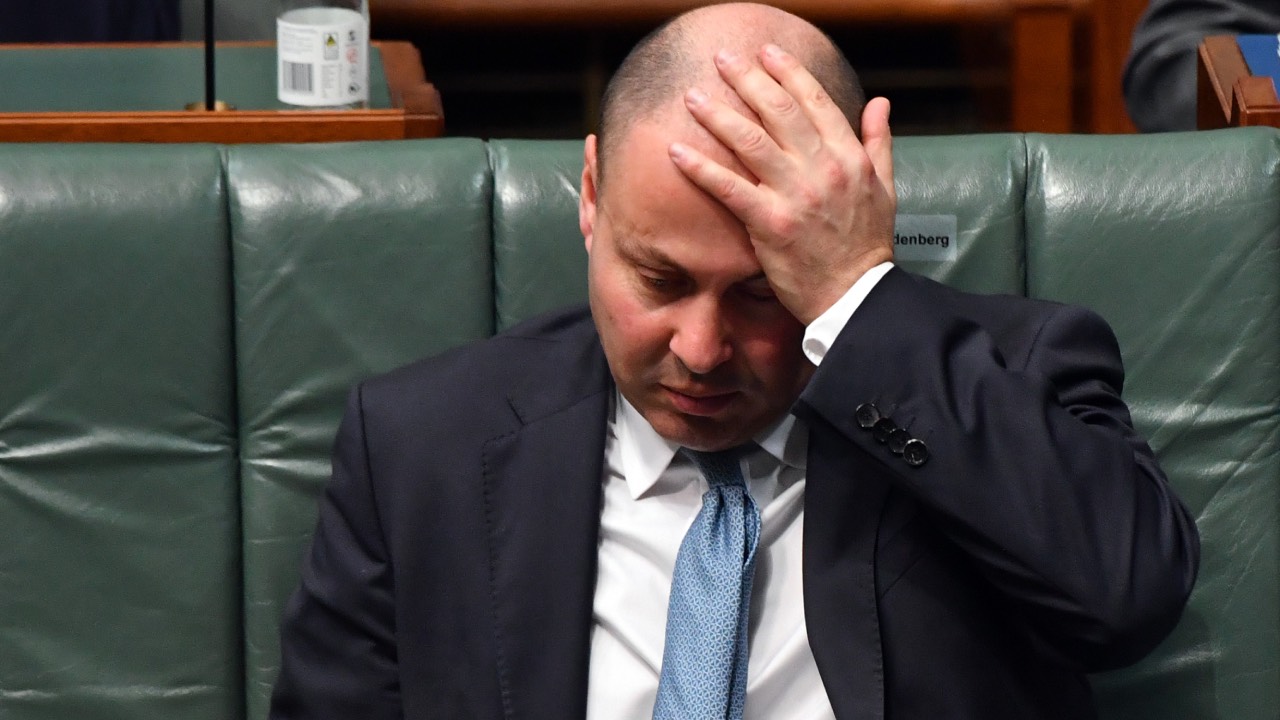What Aussie's want (and can expect) from the Federal Budget

As the government prepares to announce the 2022 Federal Budget, everyday Aussies are hoping that soaring fuel prices, the surging cost of living and support for small businesses will be addressed.
Treasurer Josh Frydenberg is set to announce the Government's new fiscal policies on Tuesday, just weeks ahead of the expected election, which is rumoured to be held in May.
Tax cuts are likely on the table for the budget, which include slashing the 44 cents-a-litre fuel duty by up to 20 cents and slashing beer duty by 30 cents, with Prime Minister Scott Morrison also hinting at one-off cash handouts for low income earners.
More than 2.3 million small businesses nationwide are expected to receive $1.85 billion in cash support after spending the last two years struggling to stay afloat from the pandemic.
Welfare and pension payments are also expected to be increased, with childcare subsides expected to be revamped.
Cash injections are also on the cards for the defence and construction industries, while family, domestic and sexual violence prevention organisations should also see a boost in vital funding.
The government's big picture
According to Frydenberg, the budget deficit is forecast to be about $70 billion.
The nation's debt continues to trend towards $1 trillion, but the government ensures this number is stabilising.
The unemployment rate will settle at 4 percent, which Frydenberg claims is the equal-lowest mark in 48 years.
Professor of Economics at UNSW Richard Holden said the economy was in better shape than had been expected, which could lead to more government spending.
“So one way that [the treasurer] can frame it is, well, we did better and we have this spare money lying around, we’ll give some of that back,” Professor Holden said.
The impact on everyday Aussies
With a steep increase in fuel and living prices, most Australians are worried about how the budget will affect their own spending.
7News has earlier reported that the federal government is considering a one-off payment, in the range of $200 to $400, to address cost-of-living issues.
It is expected that Australians earning under a certain amount per year will be offered the payment.
“So every household, every income earner under a certain level of income will get some sort of direct payment. You know, a few hundred dollars or something like that."
To put this figure into perspective, it is currently costing Australians approximately $100 minimum to fill their petrol tanks.
There is also a growing likelihood that the low- and middle-income tax offset (LMITO), which sees taxpayers earning under $126,000 receive up to $1080 in their tax return, will not be extended.
Tax cuts
In addition to the whispers of the LMITO not being extended, it is expected the government will not bring forward stage-three tax cuts for Australia's uber wealthy.
These changes mean that the highest earners in the country would be eligible for up to $9,000 come tax time, while low income earners would be left with very little.
“I think that we should have a very close look at the tax system and the offsets that are available,” Chief Economist at the Australia Institute Richard Denniss said.
“There’s no doubt that over the past decade, the shape of tax cuts that have been introduced have been for people who are higher-income earners disproportionately than lower-income earners.”
Labor's rebuttal
Last week, shadow Treasure Jim Chalmers told the Australian Chamber of Commerce and Industry that an Albanese government would deliver a "proper" budget in 2022 if elected to correct the “decade of rorts and waste” delivered by the Morrison government.
Vowing to avoid drastic change that pits people against each other, Mr Albanese plans to outline ways to increase prosperity with a $15 billion reconstruction fund, more spending on training and a climate policy he says can create jobs.
He has also previously cited previous Labor prime ministers Bob Hawke and Paul Keating and their economic strategies when creating the shadow budget.
Albanese's initial promises to the Australian public include drastic action on climate change, more tax cuts for the wealthy and more money in the pockets of everyday Aussies, and a huge boost in education funding.
The budget is expected to be delivered on Tuesday night.
Image credits: Getty Images
